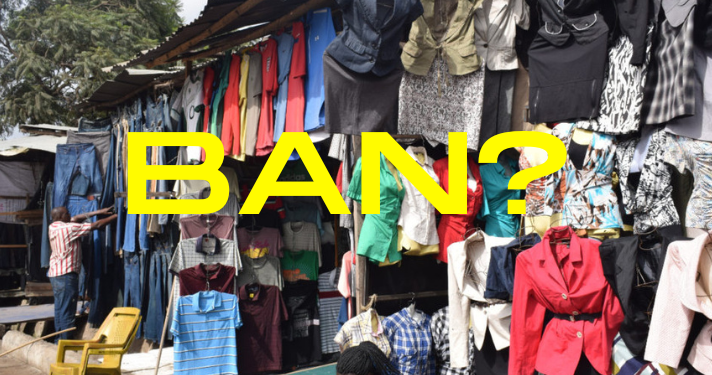The mention of the term ‘Mutumba’ is ever emotive whenever used in the context of being banned from the Kenyan market.
‘Mitumba’ is a term used to refer to clothes used in foreign countries before being sold to Kenya as second-hand at a throw-away price. Despite them being very cheap, the buying and selling has created an industry of its kind as it offers job opportunities to hundreds of thousands of Kenyans.
Read: Moses Kuria Makes U-turn On Mitumba Ban After Uproar
During the ongoing Changamka Shopping Festival at the Kenya International Convention Center organized by the Kenya Association of Manufacturers, Trade, Industries and Investments, Cabinet Secretary Moses Kuria hinted at banning Mitumba over allegations that they were detrimental to the economy of Kenya.
He later clarified that he did not intend to ban the products but make them competitive by making locally manufactured fabric cheap.
Whether or not Moses Kuria is running away from his own word, he will never win the battle of banning Mitumba products, not unless he does it forcibly. And should he choose force, he should anticipate a similar opposition from Kenyans who perceive the products as a matter of life and death. He should expect that Kenyans will be verbally combative against such a decision as they have always been or even opt for court battles.
A similar incident occurred on the eve of this year’s presidential election, where during campaigns, former prime minister Raila Odinga hinted at banning the products to boost local manufacturing. Despite his intentions at the time being pure, he found himself in the thick of things, with many Kenyans, especially social media users, expressing their dissatisfaction over the remarks. I can not confirm that it contributed to Raila’s loss, but it might have dealt him a blow in one way or the other.
Among people who are capable of staging a spirited opposition against a move to ban mitumba are those the industry has employed. With more than 200 000 people earning their living from the products, it is impossible to just tell them to vacate a hustle they have known for decades. Although Kuria aims at creating more than 1 million jobs in the formal textile sector, it is an uphill task to offer better alternatives for those currently earning from second-hand clothes.
Read: Mitumba Ban? Here’s What Raila Promised On Textile
However, those who can suffer the most from a decision to lock Mitumba out of the Kenyan market are ordinary Kenyans. According to a 2019 study by the Institute of Economic Affairs and Mitumba Consortium Association of Kenya, 91.5% of households buy second-hand clothes worth Ksh.1000 and below. Therefore, one would ask, can the government avail quality clothes that are cheaper than the Mitumbas to such a significant population? Yes, it is possible. However, with what we are accustomed to as far as the working of Kenyan systems is concerned, it is untenable. You cannot ban the products and think that the 91% will go silent and adopt the new orders.
Thus, should Kuria push to flash out second-hand clothes, let him be aware that it will never be as easy as he says it.


















